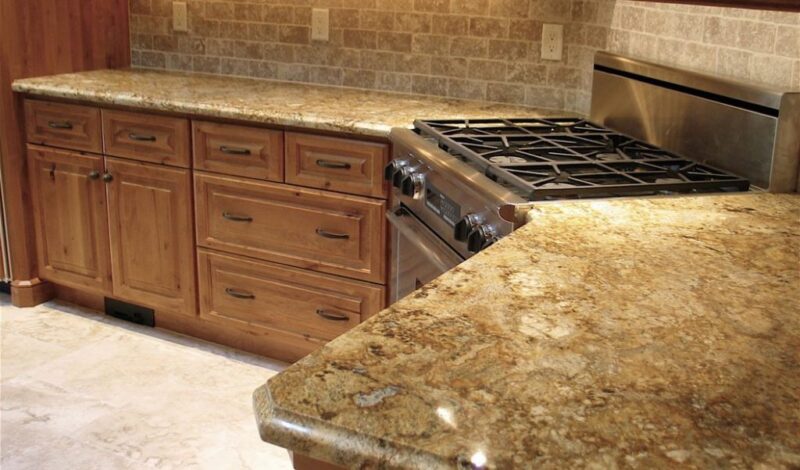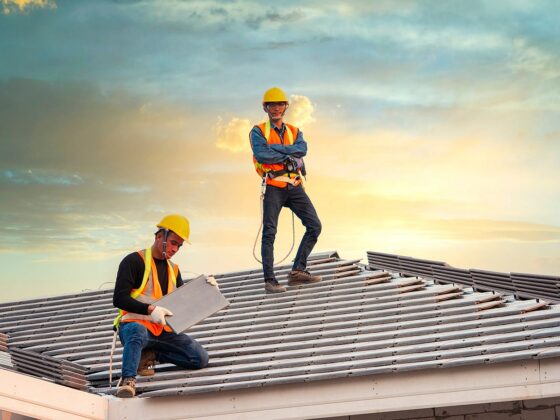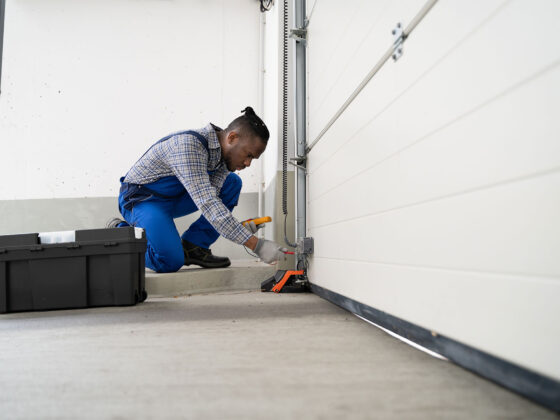When choosing new kitchen countertops, heat resistance is an important factor to consider. The material you choose needs to stand up to hot pans and baking dishes without scorching or staining. Understanding how well different countertop materials handle heat will help you pick the best option for your cooking needs.
Granite Countertops
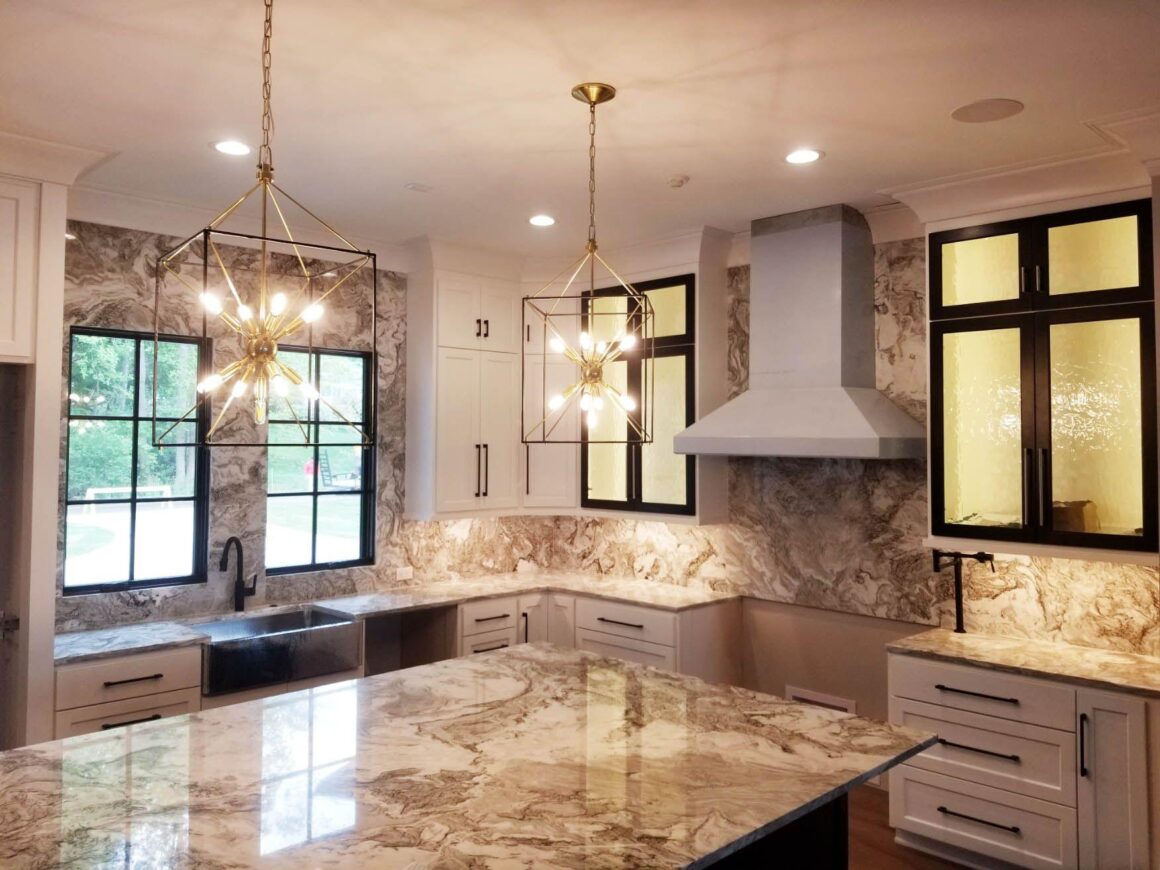
According to the people at Bedrock Quartz, granite is one of the most popular choices for kitchen countertops. Made from natural stone, granite is exceptionally durable and heat resistant. When hot pans are placed on granite countertops, the stone absorbs and distributes the heat evenly to prevent scorching.
Most granite can withstand temperatures up to 250 degrees Fahrenheit without issue. Darker granites tend to be more resilient against heat damage. The main downside of granite is that acidic liquids like lemon juice and vinegar can dull and etch the surface over time if not cleaned up promptly. But for handling hot cookware, granite is an excellent performer.
Quartz Countertops
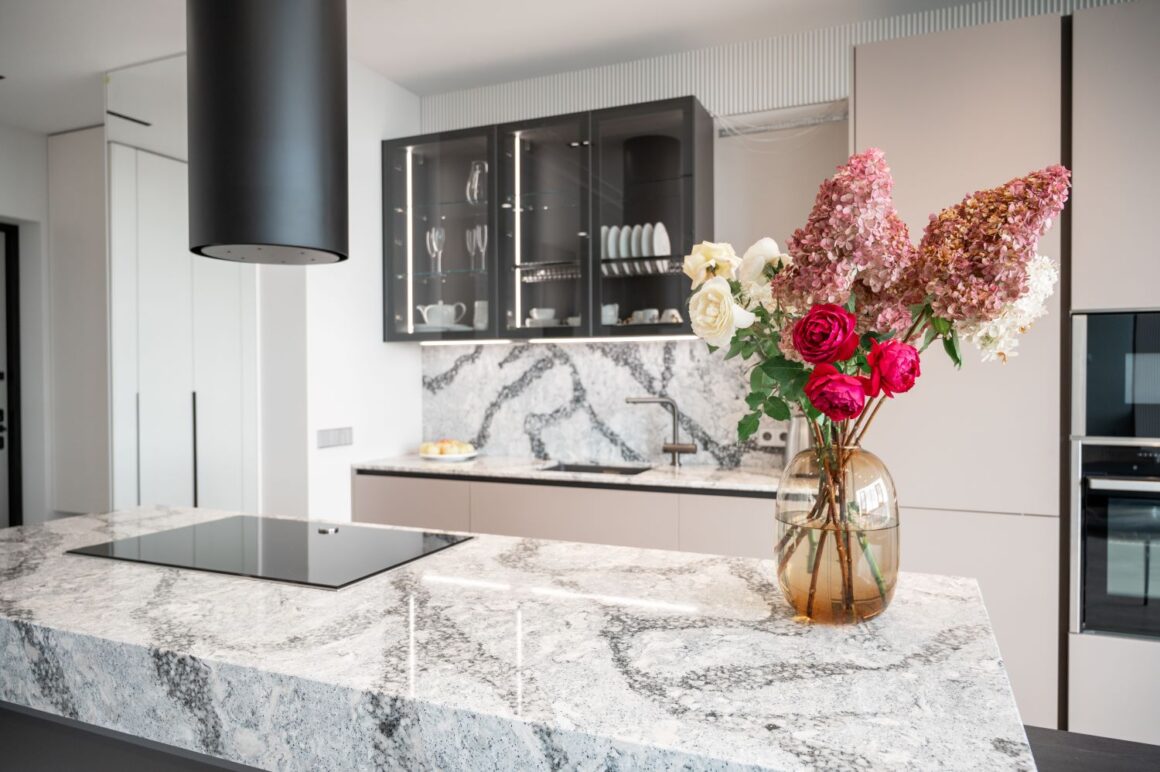
After granite, engineered quartz is the next most heat-resistant option for kitchen countertops. Quartz is an engineered composite made from crushed quartz aggregate held together by a resin binder. This combination creates a durable, non-porous surface that withstands both scratches and heat very well.
Quartz rates just under granite in terms of heat tolerance, withstanding temperatures around 212 degrees Fahrenheit before possible signs of damage. The resin binders can lose their adhesion properties when subjected to extreme heat over time. But quartz performs admirably against daily cooking tasks like resting hot pans after cooking.
Solid Surface Countertops
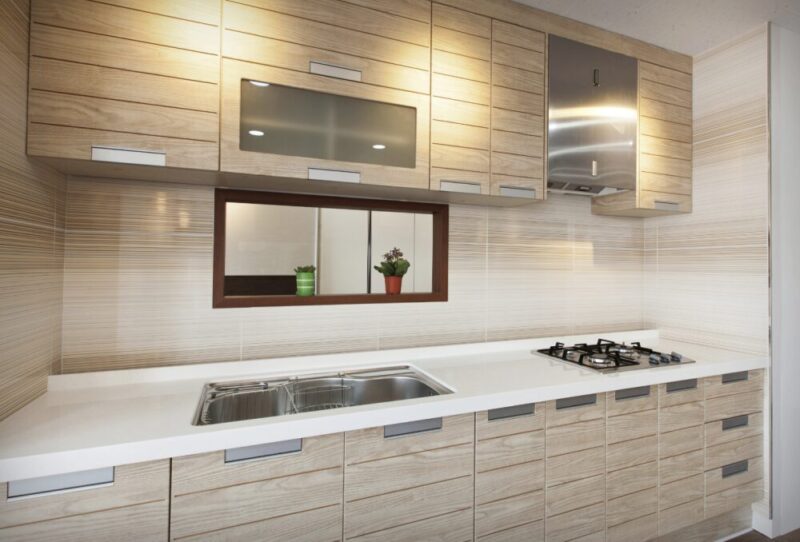
Solid surface countertops like Corian are made from an acrylic-based resin blend. They stand up reasonably well against the heat from normal cooking activities. Their heat threshold falls between 150-185 degrees Fahrenheit, typically before the solid surface material can blister or crack under the stress.
Using a hot pad or trivet for extremely hot pans is recommended to prevent lasting damage to solid surface kitchen countertops over time. While not as heat resistant as natural stone or quartz, solid surface materials resist heat better than other synthetic options.
Laminate Countertops
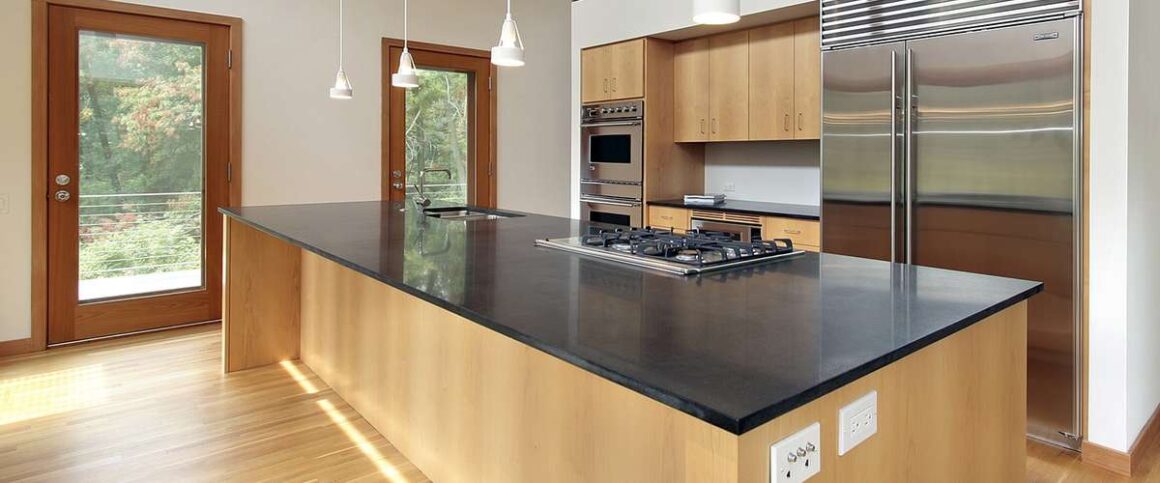
Of all the kitchen countertop choices, laminate scores the lowest for heat tolerance. Laminate countertops, like Formica, are made by bonding plastic resin to a wood substrate base layer. The plastic laminate layer helps create a sanitary, durable surface but cannot withstand high heat at all.
Placing a hot pan directly on a laminate countertop will likely crack or blister the plastic resin layer. Using protective hot pads and trivets is mandatory when handling heated cookware and baking dishes on laminate countertops.
Caring for Heat-Resistant Countertops
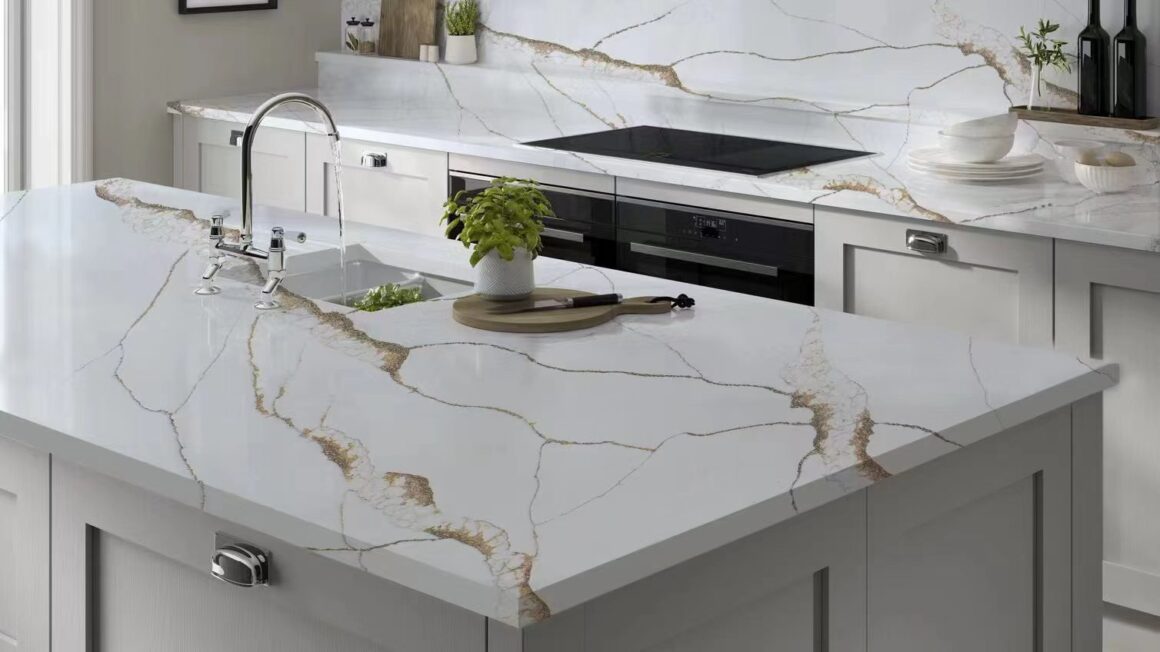
While granite, quartz, solid surface, and laminate countertops may vary in heat tolerance levels, all kitchen countertops require proper care against extreme hot and cold temperatures. Allowing any material to undergo sudden drastic temperature changes can lead to cracks and damage over time.
Always use potholders when removing items from the oven before placing them on your countertops. Just as important, avoid putting frozen items or cold drink glasses directly from the freezer onto the counters as well. Allow all chilled items to reach room temperature before setting them down. Taking steps to regulate temperature changes will help to extend the lifespan of countertops in your kitchen.
Conclusion
When choosing a new kitchen countertop, heat tolerance really is a key factor to consider. Regardless of the material chosen though, allowing sudden temperature changes could damage any countertop. You should take care to regulate hot and cold items before placing them on counter surfaces. Thinking about heat resistance will help you decide on the ideal countertop that will suit your cooking needs and promote long-term durability at the same time.

